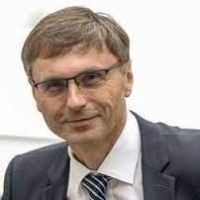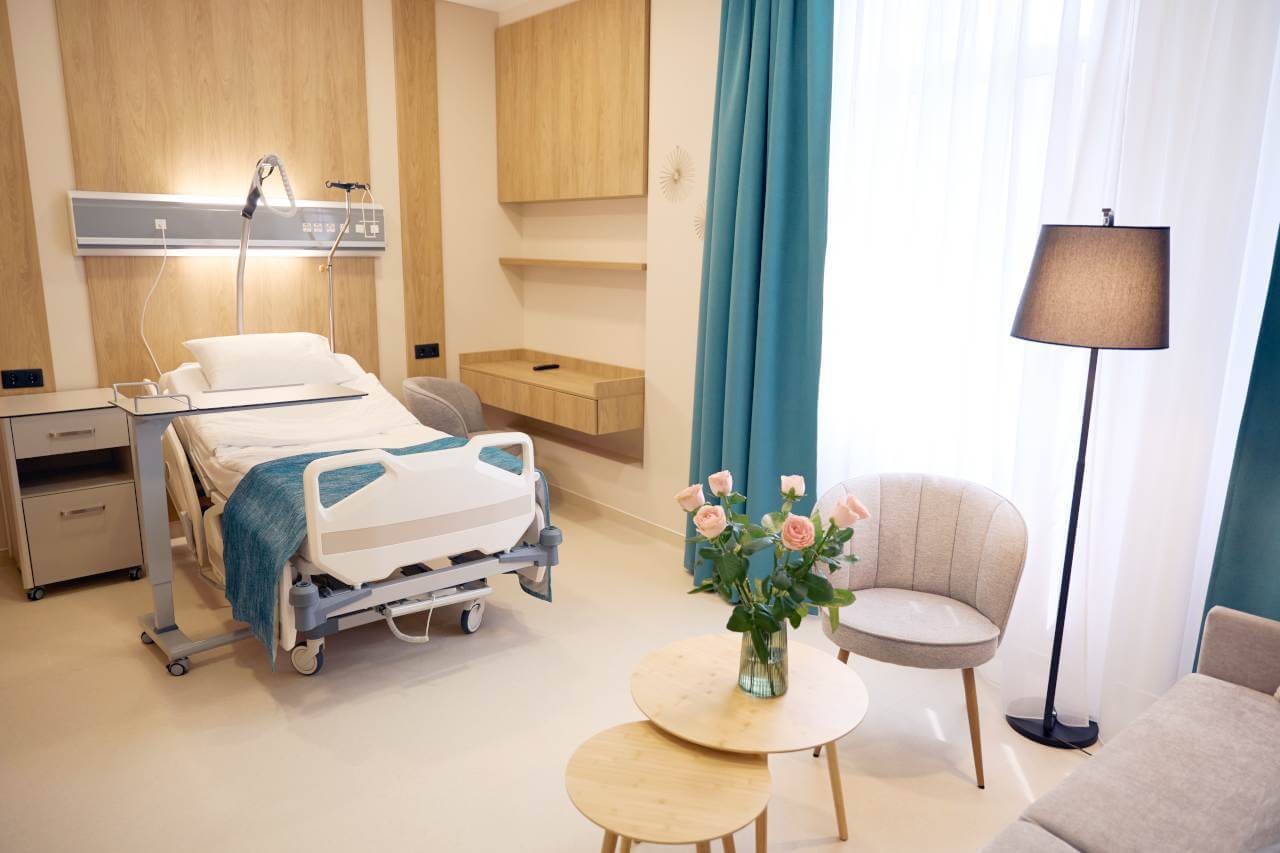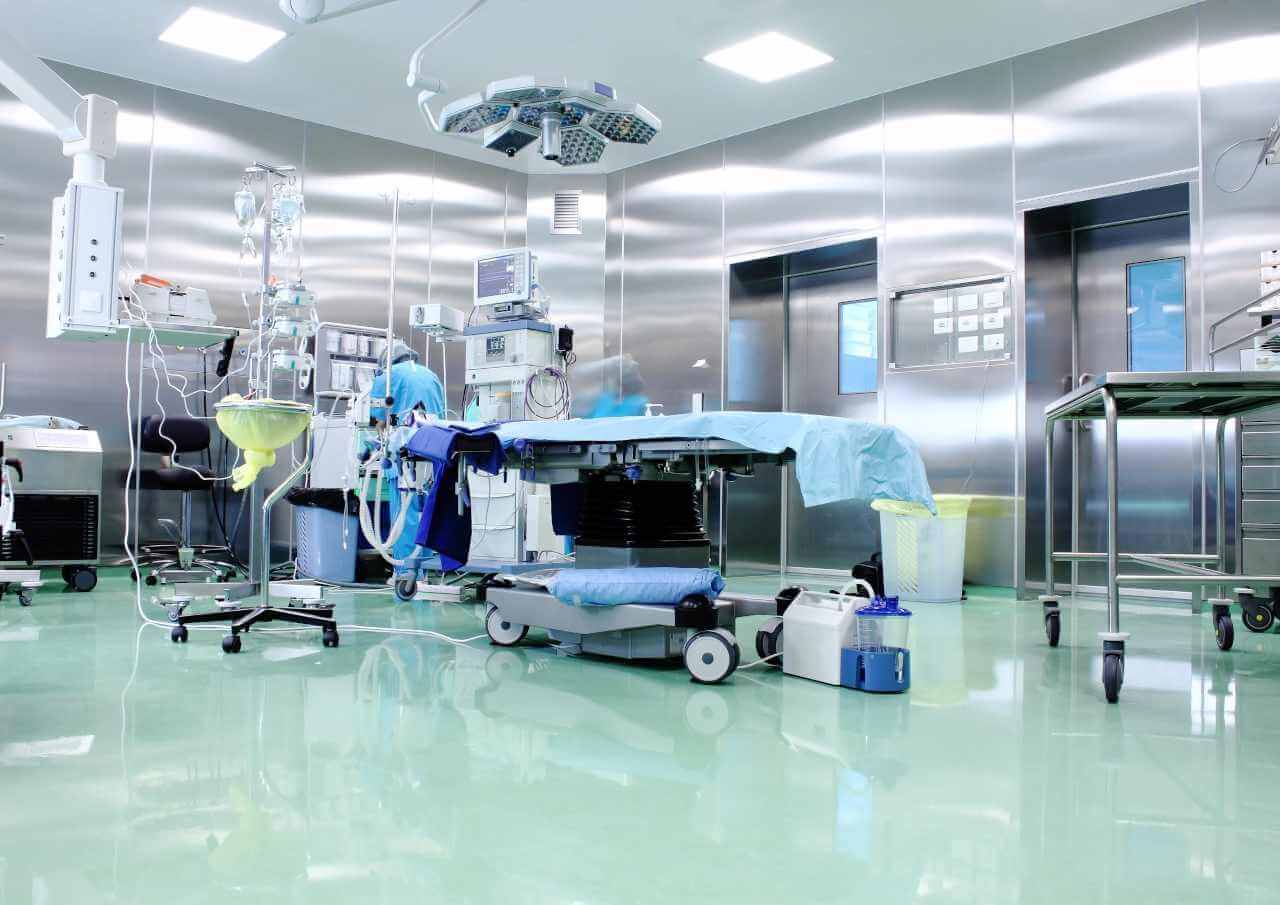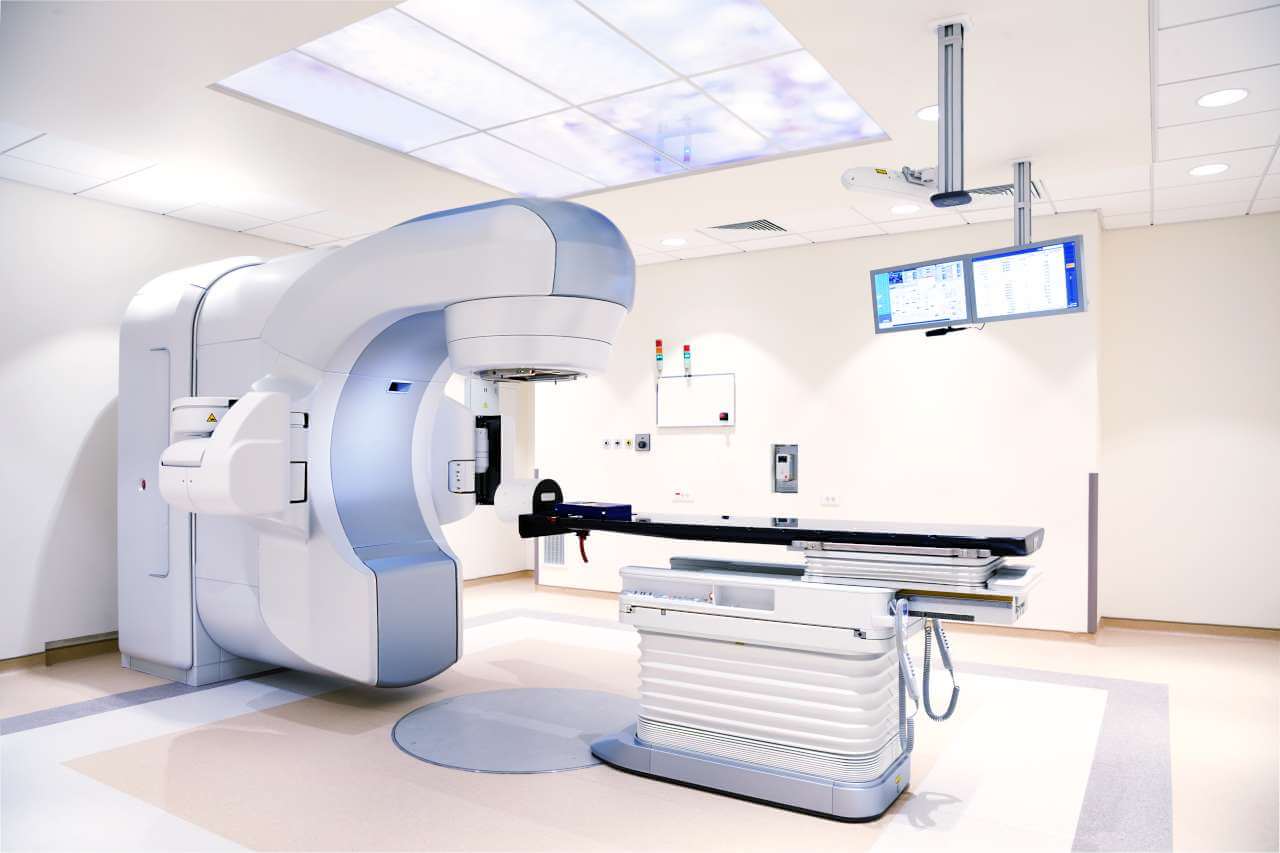
The program includes:
- Initial presentation at the clinic
- clinical history taking
- review of medical records
- general clinical examination
- extensive laboratory tests:
- complete blood count
- biochemical blood test
- inflammation markers (CRP, ESR)
- blood coagulation analysis (aPTT, PT, INR)
- serological analysis (PCR, IgM and IgG to VCA-antigens)
- nursing services
- treatment by chief physician and all leading experts
- explanation of individual treatment plan
- written statement
Required documents
- Medical records
Service
You may also book:
 BookingHealth Price from:
BookingHealth Price from:
About the department
The Department of Gastroenterology, Hepatology, Nephrology and Infectology at the Hospital Frankfurt (Oder) provides the full range of preventive, diagnostic, and therapeutic services in the areas of its specialization. The medical facility admits patients with gastrointestinal diseases, liver, gallbladder, and bile duct diseases, kidney conditions, and infections. In the field of gastroenterology, special attention is paid to endoscopic examinations and treatment. The Endoscopy Unit with state-of-the-art technology is at the service of patients, where doctors carry out endoscopic procedures for the treatment of gallstones, gastrointestinal obstructions, and gastrointestinal bleeding. In addition, the department's gastroenterologists successfully perform low-traumatic endoscopic procedures for the removal of benign and malignant gastrointestinal tumors (in the early stages). The department's team of nephrologists is responsible for drug therapy and renal replacement therapy (dialysis). Drug therapy is used to deal with infectious diseases. The department's medical team always strives to provide each patient with personalized and sparing treatment based on the very latest achievements in medicine. The department's specialists are open to dialog with the patient, and they make every effort to ensure effective treatment in a comfortable environment.
The Head Physician of the department is Prof. Dr. med. Mathias Strowski. The doctor not only conducts a successful medical practice but also actively works on promising research projects at the Charite University Hospital Berlin, being a W2 professor and a scientist at this reputable medical complex. Prof. Mathias Strowski has more than 25 years of successful clinical practice. He is a member of many professional medical societies, including the German Society for Gastroenterology, Digestive and Metabolic Diseases (DGVS), the German Society of Internal Medicine (DGIM), the German Cancer Society (DKG), and the German Society for Endoscopy and Imaging Procedures (DGE-BV). The doctor regularly publishes his scientific papers in national and international medical journals and speaks at congresses and symposia in Germany and other European countries.
The department's key focus is gastroenterology. The doctors of this specialization regularly diagnose and treat patients with gastritis, gastric ulcers, duodenal ulcers, gastroesophageal reflux disease, ulcerative colitis, Crohn's disease, stomach polyps, bowel polyps, acute bowel infections, acute pancreatitis, and other pathologies. Special attention is paid to the treatment of gastrointestinal cancers. To make an accurate diagnosis, the department's gastroenterologists use laboratory tests, functional diagnostics, ultrasound scans, and endoscopic procedures. Based on comprehensive diagnostic results, doctors develop an optimal treatment regimen. Many gastrointestinal diseases are treated with modern drugs, often combined with dietary therapy. In some clinical cases, endoscopic treatment may be required.
Endoscopic procedures are performed using a special instrument (an endoscope) that is inserted through the natural body openings. The doctor has the opportunity to examine the gastrointestinal tract from the inside and, if necessary, carry out therapeutic manipulations. Endoscopic procedures are a standard method for removing neoplasms in their early stages, arresting internal bleeding, removing foreign bodies, eliminating stenosis, etc. To ensure maximum patient comfort, sedation or general anesthesia is used during endoscopic procedures. This eliminates pain.
In the field of hepatology, the department treats liver, gallbladder, and bile duct diseases. The primary focus is on diseases such as viral hepatitis, cirrhosis, alcoholic liver disease, toxic liver lesions, non-alcoholic fatty liver disease, gallstone disease, and cholecystitis. Treatment often involves the intake of individually prescribed medications. Early stages of liver, gallbladder, and bile duct tumors can be treated using endoscopic procedures. Endoscopic manipulations are also successfully used to remove gallstones and eliminate bile duct stricture.
Nephrology specialists are responsible for providing medical care to patients with a wide range of kidney diseases, such as acute and chronic kidney failure, renal anemia, renal arterial hypertension, electrolyte and acid-base disorders, and systemic diseases with kidney lesions. Drug therapy is used as the first-line treatment. In cases of severe dysfunctions, renal replacement therapy (dialysis) is often performed to remove metabolic products and excess fluid from the blood. The department has all the necessary technical resources for hemodialysis, peritoneal dialysis, and plasmapheresis.
The department's specialists successfully deal with the treatment of infectious diseases. The doctors in this field focus on patients with tuberculosis, viral hepatitis, infectious gastrointestinal diseases, malaria, HIV infection, catheter-associated infections, sepsis, and other pathologies. Doctors use customized drug therapy regimens for the treatment of the above-mentioned diseases.
The department's key clinical focuses include:
- Gastroenterology
- Diagnostics and treatment of gastrointestinal diseases
- Gastritis
- Stomach and duodenal ulcers
- Gastroesophageal reflux disease
- Inflammatory bowel disease: ulcerative colitis and Crohn's disease
- Stomach and bowel polyps
- Acute bowel infections
- Acute pancreatitis
- Internal bleeding
- Gastrointestinal stenosis
- Gastrointestinal oncologic diseases
- Diagnostics and treatment of gastrointestinal diseases
- Hepatology
- Diagnostics and treatment of liver, gallbladder, and bile duct diseases
- Viral hepatitis
- Cirrhosis
- Alcohol-related liver disease
- Toxic liver lesions
- Non-alcoholic fatty liver disease
- Gallstone disease
- Cholecystitis
- Diagnostics and treatment of liver, gallbladder, and bile duct diseases
- Nephrology
- Diagnostics and treatment of kidney diseases
- Acute and chronic kidney failure
- Renal anemia
- Renal arterial hypertension
- Electrolyte and acid-base disorders
- Systemic diseases with kidney lesions
- Diagnostics and treatment of kidney diseases
- Infectology
- Diagnostics and treatment of infectious diseases
- Tuberculosis
- Viral hepatitis
- Infectious bowel disease
- Malaria
- HIV infection
- Catheter-associated infections
- Sepsis
- Diagnostics and treatment of infectious diseases
- Diagnostics and treatment of other pathologies
The department's range of therapeutic services includes the following options:
- Drug therapy
- Endoscopic procedures for gastroenterological and hepatic diseases
- Puncture for ascites
- Endoscopic hemostasis for bleeding from peptic ulcers
- Sclerotherapy and ligation for esophageal varices
- Endoscopic treatment of gastric varices
- Dilatation and bougienage for stenoses with subsequent stent implantation
- Foreign body removal from the digestive system
- Polypectomy (polyp removal)
- Percutaneous endoscopic gastrostomy (PEG)
- Percutaneous endoscopic enterostomy (PEE)
- Endoscopic retrograde cholangiopancreatography (ERCP) with endoscopic sphincterotomy with or without bile duct stone removal
- Endoscopic implantation of stents in the bile duct, mechanical gallstone lithotripsy
- Nasobiliary probe implantation
- Pancreatic duct stenting
- Endoscopic drainage of pancreatic pseudocysts (percutaneous transhepatic cholangiodrainage)
- Renal replacement therapy (dialysis)
- Intermittent hemodialysis and hemodiafiltration
- All forms of peritoneal dialysis
- Continuous hemofiltration and hemodiafiltration
- Plasmapheresis
- Other medical services
Curriculum vitae
Higher Education and Postgraduate Academic Training
- 1989 - 1996 Medical studies, Philipps University of Marburg.
- 07.05.1997 Thesis defense, summa cum laude, Philipps University of Marburg.
- 1994 Research Fellow, Department of Physiology, University of Michigan, Ann Arbor, Michigan, USA.
- 1996 Visiting Research Fellow, Department of Gastroenterology, University Hospital Rostock.
- 1996 - 1997 Research Fellow and Head of Laboratory, Institute of Anesthesiology and Intensive Care, University Hospital Mannheim.
- 1997 - 1998 Research Fellow in the Clinical Research Group, Center for Internal Medicine, Philipps University of Marburg.
- 1998 - 2000 Postdoctoral Fellowship, German Research Foundation, Department of Chemical Biology and Endocrinology, Merck Research Laboratories, Rahway, NJ, USA.
- 2000 - 2001 Research Fellow, Department of Molecular Endocrinology, Merck Research Laboratories, Rahway, NJ, USA.
- 2001 - 2013 Establishment and management of the Working Group on the Treatment of Neuroendocrine Gastrointestinal Tumors, Charite University Hospital Berlin.
- 25.04.2006 Habilitation and Venia Legendi for Experimental Medicine.
- 25.10.2007 Venia Legendi for Internal Medicine.
- 06.2010 - 03.2013 W2 Professor, Charite University Hospital Berlin.
- Since 04.2013 Visiting Scientist, Charite University Hospital Berlin.
- 31.10.2014 Extraordinary Professorship, Charite University Hospital Berlin.
- 24.02.2023 Doctor honoris causa, Poznan University, Poland.
Medical Practice
- 05.2022 Head Physician, Department of Gastroenterology, Hepatology, Nephrology and Infectology, Hospital Frankfurt (Oder).
- 07.2016 - 04.2022 Head Physician, Department of Gastroenterology and Oncology, Park-Clinic Weissensee Berlin.
- 2014 Extraordinary Professorship, Charite University Hospital Berlin.
- 04.2013 - 05.2016 Head Physician, Department of Gastroenterology, Oncology and Diabetology, Elbland Hospital Meissen.
- 04.2001 - 03.2013 Physician and Research Fellow, Department of Gastroenterology and Hepatology, Interdisciplinary Center for Metabolic Disorders, Charite University Hospital Berlin.
- 06.2010 - 03.2013 Senior Physician, Head of the Colon Center, Charite University Hospital Berlin.
- 03.2011 - 03.2013 Head of the Section for Gastrointestinal Functional Diagnostics, Charite University Hospital Berlin.
- 01.1996 - 06.1997 Internship, Department of Anesthesiology and Intensive Care, University Hospital Mannheim.
Board Certification and Additional Qualifications
- 21.03.2018 Additional qualification in Tumor Drug Therapy.
- 08.10.2013 Additional qualification in Proctology.
- 06.05.2011 Additional qualification in Diabetology.
- 29.04.2009 Board certification in Gastroenterology.
- 15.08.2007 Board certification in Internal Medicine.
Clinical Interests
- Interventional endoscopy, especially endosonography and colonoscopy.
- Treatment of functional gastrointestinal disorders.
- Treatment of hereditary stomach and colon cancers.
- Treatment of diabetes mellitus.
- Treatment of chronic inflammatory bowel disease.
Prizes, Awards, and Honors
- 1998 Encouraging Award, German Diabetes Association (DDG).
- 2002 and 2003 Poster Award, German Society for Gastroenterology, Digestive and Metabolic Diseases (DGVS).
- 2004 Rising Star Award, Association of National European and Mediterranean Societies of Gastroenterology.
- 2007 Hans Christian Hagedorn Encouraging Award, German Diabetes Association (DDG).
- 2016 Presentation Award, German Diabetes Association (DDG).
Memberships in Professional Societies
- Royal Society of Medicine (RSM).
- Royal College of Physicians and Surgeons of Glasgow (RCPS).
- German Society for Gastroenterology, Digestive and Metabolic Diseases (DGVS).
- German Diabetes Association (DDG).
- German Society for Endocrinology (DGE).
- German Society of Internal Medicine (DGIM).
- European Association for the Study of Diabetes (EASD).
- German University Association (DHV).
- German Cancer Society (DKG).
- German Society for Endoscopy and Imaging Procedures (DGE-BV).
- Society for Gastroenterology and Hepatology in Berlin and Brandenburg (GGHBB).
- Berlin Medical Association.
Photo of the doctor: (c) Klinikum Frankfurt (Oder)
About hospital
The Hospital Frankfurt (Oder) has an excellent reputation in the national and international medical arena, providing patients with high-quality medical services in accordance with the standards of modern medicine. The healthcare facility is an academic hospital of the Charite University Hospital Berlin and is also part of the Rhön-Klinikum AG medical concern. The health of patients is in the safe hands of a team of highly professional doctors and nursing staff, which, combined with advanced infrastructure and technical equipment, allows doctors to work wonders, curing patients from the most severe diseases.
The hospital has 25 specialized departments as well as highly specialized centers and institutes. Thus, almost all areas of medicine are represented here, including general, abdominal and thoracic surgery, neurosurgery, vascular surgery, orthopedics and traumatology, ophthalmology, dermatology, gastroenterology, nephrology, neurology, pediatric and adolescent medicine, radiation oncology, urology, etc. Special competence exists in the fields of gastroenterology, nephrology, infectology, rheumatology, and endocrinology. In addition, the hospital successfully carries out cell therapy and has been brilliantly performing autologous stem cell transplants on patients with hematological diseases and cancers for many years. The medical facility is the only one in the federal state of Brandenburg that performs allogeneic stem cell transplants from related donors.
All the hospital's doctors cooperate closely with each other, providing patients with comprehensive interdisciplinary treatment. An important component in the work of physicians is a humane attitude towards their patients and support for a patient on his way to recovery.
The medical center is certified in accordance with the DIN EN ISO 9001:2015 requirements and is awarded the IQM (Initiative Qualitätsmedizin) quality certificate, so patients can be sure that they will receive excellent medical service and successful treatment results.
Photo: (с) depositphotos
Accommodation in hospital
Patients rooms
The patients of the Hospital Frankfurt (Oder) live in comfortable single and double rooms with a modern design. The patient room furnishings include an automatically adjustable bed with an orthopedic mattress, a wardrobe, a desk, an armchair with a coffee table, a safe, a mini-fridge, a Full HD flat-screen TV, a telephone, and a radio. Each patient room has Wi-Fi access. The patient rooms are equipped with an ensuite bathroom with a shower and toilet, a heated towel rail, a hairdryer, a cosmetic mirror, a set of toiletries, a bathrobe, and bath towels.
Meals and Menus
The patients of the hospital are offered three tasty and healthy meals a day: breakfast, lunch, and dinner. If, for some reason, you do not eat all the foods, please inform the medical staff in advance, and you will be offered an individual menu.
The hospital also has a cozy cafe where one can taste a delicious meal, a cup of coffee, or tea with dessert. In the warm season, an open terrace is also available here.
Further details
Standard rooms include:
![]() Shower
Shower
![]() Toilet
Toilet
![]() Wi-Fi
Wi-Fi
![]() TV
TV
Religion
The hospital has a prayer room open to patients and their relatives. One can stay alone for a prayer, and holy masses are regularly held here.
Accompanying person
Your accompanying person may stay with you in your patient room or at the hotel of your choice during the inpatient program.
Hotel
You may stay at the hotel of your choice during the outpatient program. Our managers will support you for selecting the best option.





